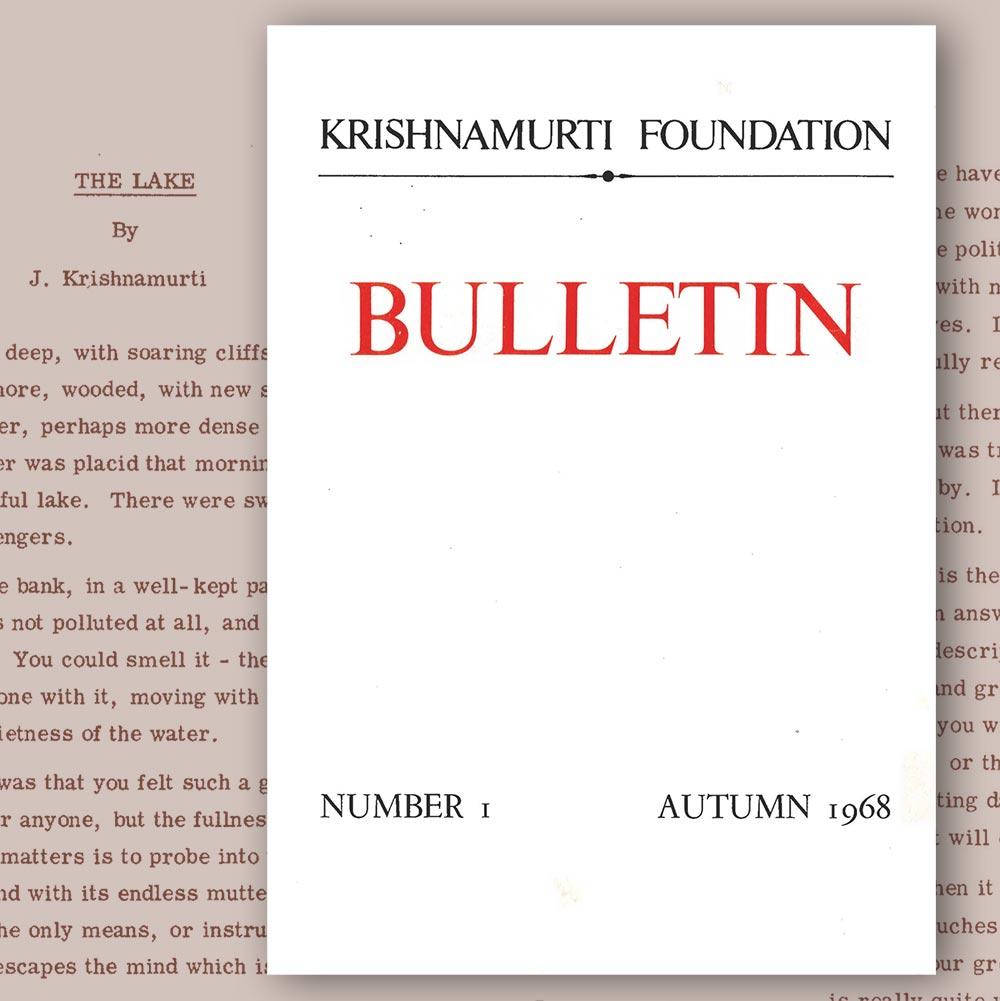The lake was very deep, with soaring cliffs on both sides. You could see the other shore, wooded, with new spring leaves, and that side of the lake was steeper, more dense with foliage, and heavily wooded. The water was placid that morning, and its colour was blue-green. It is a beautiful lake. There were swans, ducks, and an occasional boat with passengers.
As you stood on the bank, in a well-kept park, you were very close to the water. It was not polluted at all, and its texture and beauty seemed to enter into you. You could smell it – the soft, fragrant air and the green lawn – and you felt one with it, moving with the low current, the reflections, and the deep quietness of the water.
The strange thing was that you felt such a great sense of affection, not for anything or for anyone, but the fullness of what may be called love. The only thing that matters is to probe into the very depth of it, not with the silly little mind with its endless muttering of thought, but with silence. Silence is the only means, or instrument, that can penetrate into something that escapes the mind which is so contaminated.
We do not know what love is. We know the symptoms of it – the pleasure, the pain, the fear, the anxiety and so on. We try to solve the symptoms, which become a wandering in darkness. We spend our days and nights in this, and it is soon over in death.
There, as you were standing on the bank watching the beauty of the water, the one issue that would solve all human problems and institutions, man’s relationship to man, which is society – all would find their right place if silently you could penetrate into this thing called love.
We have talked a great deal about it. Every young man says he loves some woman; the priest his god, the mother her children, and of course the politician plays with it. We have spoilt the word and loaded it with meaningless substance – the substance of our narrow little selves. In this narrow little context, we try to find the other thing, and painfully return to our everyday confusion and misery.
But there it was, on the water, all about you, in the leaf, in the duck trying to swallow a large piece of bread, and in the lame woman who went by. It was not a romantic identification or a cunning rationalised verbalisation. But it was there, as factual as that car or that boat.
It is the only thing which will give an answer to all our problems. No, not an answer – for then there would be no problems. We have problems of every description, and we try to solve them without that love, so they multiply and grow. There is no way to approach it or to hold it, but sometimes, if you stand by the roadside or by the lake, watching a flower or a tree, or the farmer tilling the soil, and if you are silent, not dreaming, not collecting daydreams, or weary, but with silence in its intensity – then perhaps it will come to you.
When it comes, do not hold it; do not treasure it as an experience. Once it touches you, you will never be the same again. Let that operate, and not your greed, your anger or your righteous social indignation. It is really quite wild, untamed, and its beauty is not respectable at all.
But we never want it, for we have a feeling that it might be too dangerous. We are domesticated animals, revolting in a cage we have built for ourselves – with its contentions, wranglings, impossible political leaders, and gurus who exploit your self-conceit and their own, with great refinement or rather crudely. In the cage, you can have anarchy or order, which in turn gives way to disorder – which has been going on for many centuries – exploding and falling back, changing the patterns of the social structure, perhaps ending poverty here or there. But if you place all these as the most essential, you will miss the other.
Be alone, sometimes; if you are lucky, it might come to you, on a falling leaf, or from that distant solitary tree in an empty field.




